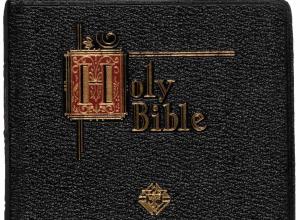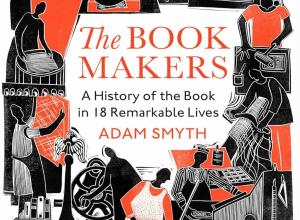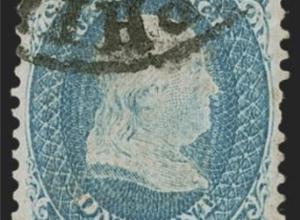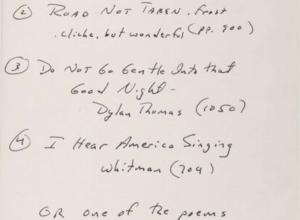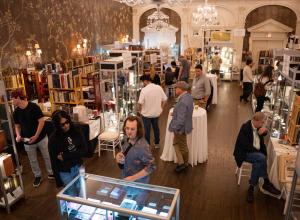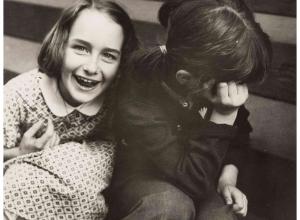Ed Nudelman's Arts and Science
It can be cliche to call someone a Renaissance Man, but in the case of antiquarian bookseller Ed Nudelman, it is apt. Book collectors and dealers will recognize the name Nudelman Rare Books, an ABAA antiquarian shop since 1983 that specializes in English and American literature, especially the Pre-Raphaelite period. But what you may not know is that Ed Nudelman is a recently retired cancer research scientist, who wrote more than sixty research papers. He is also a published bibliographer and a poet. That kind of productivity, in two (or three) such distinct fields at the same time, is hard for many of us to imagine. So I thought I'd pick his brain about it.
RRB: You started your career as a cancer research scientist. How long were you doing that before you began thinking about books? How long were you a collector before you became a dealer?
EN: I received my degree in biochemistry from the University of Washington in 1976 and immediately began my first formal appointment at the Fred Hutchinson Cancer Research Center in Seattle. The Institute is well known for having pioneered bone marrow transplant intervention for some of the then fatal leukemic cancers. I immediately became interested in cancer research and have been working as a scientist in various laboratories and biotech companies ever since.
It was in the summer of 1979 that I bought my first rare book, an illustrated edition of one of the Scribner's Classics, by Robert Louis Stevenson entitled A Child's Garden of Verses. This was during a foray into an antique shop with my soon-to-be wife, Susan, and the model of her going toward the antique pottery and armoires and me going toward the dusty stacks of old books was set into place. But it wasn't until I noticed that the book was illustrated by Jessie Willcox Smith that I became infatuated with that illustrator and more or less obsessed with trying to find all of her books. This eventually occurred, and it was said by many that I was personally responsible for inflating the price of Smith's first editions in the 1980s. I later sold the entire collection along with original paintings to the Chicago Public Library, but before that occurred, Pelican published my first book, Jessie Willcox Smith, A Bibliography, which has turned out to be the definitive bibliography on her illustrations in books, posters, calendars, magazines, etc.
I was a collector for probably two years before I became a dealer. However, like many of my colleagues, I managed to keep a small collection fairly intact for many years, only selling duplicate copies. At that time I was interested in late nineteenth-century American Illustrators, fine bindings, 1890s, and the Arts and Crafts Movement, and my collecting interests continued to evolve around chiefly the Pre-Raphaelite movement and the 1890s.
RRB: How did you juggle a career in science with a career in bookselling?
EN: It never seemed like juggling to me. I think many scientists become interested in the arts, or at least obtain an appreciation for things appealing to their less 'exercised' right side of the brain. For me, after coming home from a difficult day in the lab mixing chemicals, incubating solutions, and in general becoming more and more frustrated analyzing data, there was something unusually rewarding about finding a package and knowing inside it lurked something beautiful (and mysterious): a rare book I'd never seen or held before.
RRB: Your focus as a collector and a dealer is Pre-Raphaelites, the 1890s, and writers of the Arts/Crafts period. To me, an obvious question is, why not medical books?
EN: They did interest me for a while early on, but not passionately; medical books never appealed to me from an aesthetic point of view. And I think I was looking for respite from the rigorous, linear aspects of my career in the science world. So, as alluded to above, my passion for the aesthetic quality of books as objects, fine bindings, wood-engraved illustrations from the 1850s, hand-colored plates... these kinds of things appealed to me early on and continue to fuel my interest and drive. But in our bookshop, we have branched into many other areas such as Natural History, Important Literature, Fine Bindings, and Jugendstil Children's Books.
RRB: How did poetry enter the picture?
EN: Seven years ago my wife and I relocated to New England (just north of Boston) to pursue a biotech business venture. We had been native Seattleites all our lives, and kept our house in Seattle thinking this would be a two-year adventure. I kept my book business going during this time, but didn't show at the California ABAA fairs as I had the previous two decades. One result of the move was that I found I had a little more free time to pursue non-vocational interests. I joined an online writing group and started producing a lot of prose, short-stories and the like. One day I posted a poem I had written in high school and it got more attention than any of my stories. That gave me the impetus to explore writing poetry, publishing in journals, and eventually having two poetry books published (third in manuscript).
RRB: So you've been a scientist, a bookseller, a bibliographer, and a poet. Anything else? Which has been most rewarding?
EN: Well, I play a lot of guitar, instrumental open tunings like John Fahey and Leo Kotke. I like to hang out with our family, which we have in spades. Our three kids have already produced 6 grandkids, and all are under the age of 5! We have a large house and half an acre in North Seattle and everyone convenes here daily, which we love. Having our book business in our home gives me the flexibility now to work in a dedicated fashion, but not one confined by deadlines and time constraints. I love sitting in my office and peering out over our Provencal garden, inhaling the roses and lavender and, believe it or not, working hard at trying to sell rare books!
RRB: What direction are you taking as an antiquarian bookseller these days? What's your prognosis for book collecting in the 21st century?
EN: We have been expanding our business, buying larger collections, paying more attention to auctions and rare book fairs. We have a growing online presence, including a fully active shopping cart website with multiple photos of every book in our stock.
I'm very optimistic about the future for the rare book business. Commodities of historical and authentic artistic and literary merit will always be in demand. Buying and selling rare books in today's internet climate puts a premium on research and placing valuation as true to what the market will accept as one possibly can. Buying is a function of what your clients are looking for, and how you can best provide what is needed in a competitive way. In my view, the internet hasn't leveled the playing field, as some have said, but rather provided more reliable and reproducible metrics on which to base buying and selling. This is the kind of landscape I thrive best in. Therefore, much of my time is spent querying my clientele and researching availability, analyzing all aspects of bibliography, condition, and the uniqueness of an item. I hope this pays off in the long run.









